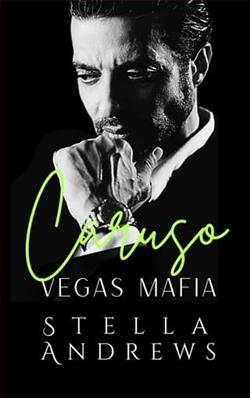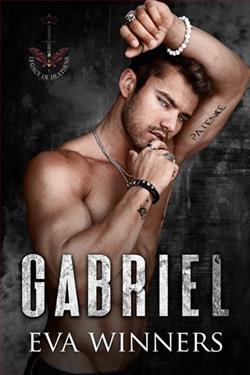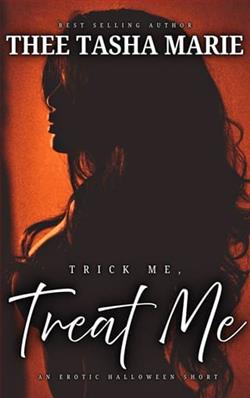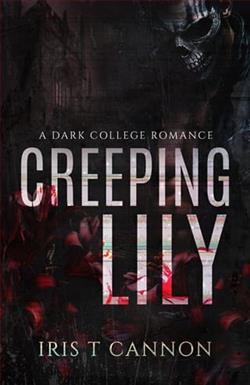Page 99 of When I Picture You
No, don’t! Surprise me at the show.
“Lola?”
She looked up, still grinning, to see Chloe standing before her in baggy jeans and a vintage Chicago Bulls jacket. Almost hidden bythe large sleeves, her fists were clenched anxiously. Lola jumped up to give her a reassuring hug.
Though Lola had missed Saint Satin’s set at Corkscrew, that memory of Chloe at the after-party had inspired her to request an early copy of the album. It was packed with pop songs structured around dynamite hooks and lyrics that were a little clever, a little dirty, and very fun. Chloe shared writing credits on all of them, and Ackerlund had produced the album. Saint Satin could be huge—if Chloe worked hard, if the right people liked her, and if she had a gigantic stroke of luck. Lola remembered her own moment, before it all blew up. She’d had a fan base and industry experience fromYou’re Next!She’d thought she understood what she was getting into. She hadn’t realized the roller coaster she’d strapped herself into had barely begun to move.
In person, Chloe was much like Lola remembered her: full lips, straight brows, and long, shining black hair, but she didn’t seem to care overmuch about being pretty. Chloe was a few years older than Lola had been when her first album came out. Twenty-one was an age where you wanted the whole world to look at you, and Chloe had thatitfactor that would make the world stare. If Lola hadn’t noticed how Chloe kept cracking her knuckles, she would have bought the younger woman’s aura of perfect self-assurance.
“Congratulations on your album! It’s good, Chloe. It’s really good.”
“Thank you,” Chloe said earnestly. “I’m trying not to get too invested in praise and all that, but it does mean a lot coming from you. You were a huge influence on me.”
“Really?” Lola said with an encouraging smile. “I don’t think our sounds are very similar.”
“Not anymore!” Chloe laughed. “I’ve worked hard to find my own sound. But my earliest stuff? It was all Lola Gray–coded. But, like, queer.”
Lola’s smile froze on her face.
Chloe continued, “Little Chloe really saw herself in you. Your first album fucking ate and left no crumbs, and you were only seventeen! Knowing you wrote all your own songs and you were killing it meanta lot.”
“And it means a lot to me that I inspired an artist like you,” Lola said. “I know how hard this business can be. The pressure can be overwhelming, and you don’t always have good people to talk to. I want you to know that I’m here for you.”
“See, I always knew you were fucking cool,” Chloe said in a way that forced Lola to think about everyone Chloe might have had to defend her to.
They talked over antipasti and arancini about Chloe’s break.
“A lot of people say I got discovered on TikTok, like that’s easy to do,” Chloe said. Where other artists might have been cowed by some of the hate Chloe had already received, even at this point in her career, she’d responded to it with a fiery faith in herself. “I was working my ass off. That song charted in the Hot 100, and I wrote, recorded, and produced itin my bedroom.”
“It’s a huge achievement,” Lola said.
“Especially for a queer woman,” Chloe said proudly.
Lola sipped her water. She’d never thought to frame her own accomplishments that way. “Has your label been supportive of your, um, identifying as queer?”
Chloe puffed out a laugh. “They didn’t have a choice.”
Lola dug her teeth into her cheek. There was something about Chloe’s confidence that made Lola feel insufficient. Renee had the same self-assurance, and Lola had always envied it. She wanted so much to be liked—to be loved—that despite all her success, the idea of simply not trying to win others over made her skin crawl. Maybe it was a queer thing—not to care so much what others thought.
“I meant, when you came out to them, they reacted positively?”
“I didn’t really have to come out. I was never hiding. I can’t create if I can’t be myself, and I’m never going to be that shiny, happy, girly pop star. No offense—we love a high femme queen—but I’m not her.”
“That’s great,” Lola said, trying not to think about why she hadn’t been strong enough to do the same. “I hope it stays that way. Sometimes the label will say one thing, then do another.”
“I’m not worried about that. My label’s like,The market’s ripe for an edgy sapphic pop star.” Chloe popped a piece of soppressata into her mouth, chewed, then said, “I have a rule that anyone I work with has to hold space for me to be authentically myself. If they can’t, they’re out.”
Sudden sympathy washed out Lola’s envy. Chloe was so young, so green. The idea that anyone in the public eye could be their authentic selves was painfully naive. Celebrity flattened everything. It made you into a product with a target market and a sales pitch. When Chloe heard her label call her anedgy sapphic pop star, she saw an opportunity to be herself. She didn’t yet realize that she’d been assigned a role, an image, a narrative.
“You’re not concerned about being pigeonholed?” she asked.
“Oh, I definitely don’t want that,” Chloe said, as if some artistsdidwant to be pigeonholed. She slung an arm across the banquette. “I’m not going to fit into their little box. If they think I’m too much, fuck them. Iwantto be too much, because for too long we’ve been forced to be too little. I want to be the first woman to have a number one hit about sucking clit.”
Lola sucked in a sharp breath at Chloe’s crassness. The truth was, Lola had already achieved that milestone with the post–Wild Heartsingle, “Just Between Us,” though she’d chosen more oblique language. She didn’t mention that to Chloe. She’d never mentioned it to anyone.
“Queer women have always been here, but we’ve been marginalized for so long. I have a duty to be the role model I didn’t have when I was younger,” Chloe went on, impassioned.
“You really think that still matters, now?” Lola asked. “There are so many queer people in the public eye.”















